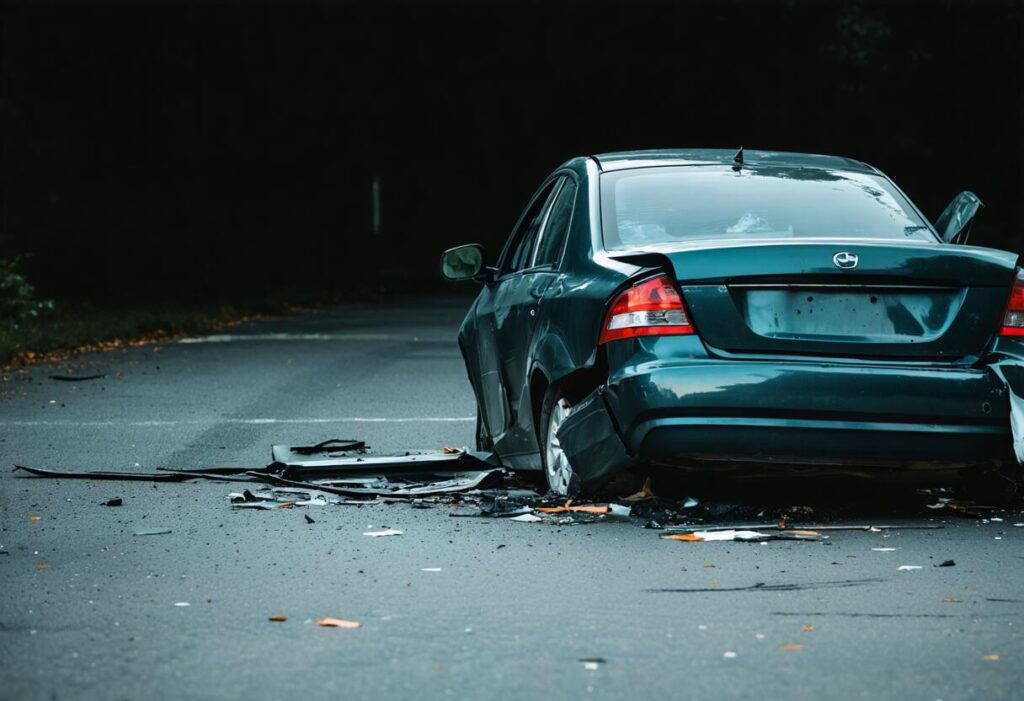TL;DR
In Georgia, wrongful death cases from car accidents involve legal actions filed by survivors seeking compensation for lost lives due to another’s negligence. These cases require proving the driver’s fault, adhering to a two-year statute of limitations, and understanding the types of damages available. Seeking experienced legal counsel is crucial to navigate the complexities and secure rightful compensation.
Key Highlights
- Definition: Wrongful death occurs when someone’s negligence leads to another’s death in a car accident.
- Statute of Limitations: Georgia allows two years from the date of the accident to file a wrongful death claim.
- Proving Negligence: Essential elements include duty of care, breach, causation, and damages.
- Compensation Types: Includes medical expenses, funeral costs, lost income, and loss of companionship.
- Insurance Role: Insurance companies may cover damages, but negotiations often require legal assistance.
- Legal Assistance: Hiring an attorney experienced in wrongful death cases increases the chances of a successful claim.

Car accidents remain a leading cause of fatalities in Georgia, significantly impacting families and communities. Between 2018 and 2022, the state reported thousands of vehicle-related deaths, highlighting the critical need for robust legal frameworks to support victims’ families. In 2023 alone, Atlanta saw numerous severe collisions, emphasizing the state’s ongoing struggles with road safety.
Georgia law provides specific avenues for families to seek justice through wrongful death claims when a loved one dies due to another’s negligence in a car accident. According to Georgia Code § 51-10-40, wrongful death actions must meet particular criteria and follow defined legal processes. These laws are designed to ensure that survivors receive appropriate compensation while holding responsible parties accountable.
Understanding the intricacies of wrongful death cases in Georgia empowers families to make informed decisions during challenging times. This article explores the essential aspects of these legal actions, offering clear insights into the process, requirements, and benefits involved.
Understanding Wrongful Death Claims in Georgia
Wrongful death claims arise when a person’s death results from someone else’s negligent or intentional actions. In Georgia, these cases specifically address deaths caused by car accidents where another party’s fault led to the tragic loss.
Key Elements of a Wrongful Death Claim
- Negligence: Proving that the responsible party failed to exercise reasonable care.
- Causation: Establishing a direct link between the negligence and the death.
- Damages: Quantifying the financial and emotional losses suffered by the survivors.
Eligible Parties
Surviving family members, including spouses, children, and parents, can file wrongful death claims. The law prioritizes close relatives who depended on the deceased for financial support or companionship.
Legal Grounds
Under Georgia law, wrongful death due to car accidents can include factors such as:
- Distracted driving
- Driving under the influence
- Reckless driving
- Vehicular malfunctions
Establishing these factors is crucial for a successful claim.
Statute of Limitations for Wrongful Death Cases
Time is a critical factor in wrongful death cases. Georgia law sets a clear timeframe within which these claims must be filed to be considered valid.
Two-Year Limit
The statute of limitations for wrongful death in Georgia is two years from the date of the car accident. Filing within this period is essential to preserve the right to pursue compensation.
Exceptions and Extensions
In certain circumstances, such as when the deceased was a minor or had legal incapacities, the court may allow extensions. It’s vital to consult with an attorney promptly to understand any possible exceptions.
Consequences of Missing the Deadline
Failing to file within the specified timeframe can result in the dismissal of the case, leaving survivors without legal recourse. Prompt action ensures that the claim remains viable.
Proving Negligence in Car Accident Wrongful Death
Establishing negligence is fundamental to winning a wrongful death case. It requires demonstrating that the responsible party failed to uphold their duty of care, leading to the accident and subsequent death.
Duty of Care
Every driver has a legal responsibility to operate their vehicle safely and adhere to traffic laws. This duty ensures the safety of all road users.
Breach of Duty
A breach occurs when a driver violates traffic laws or fails to act with reasonable care. Examples include speeding, ignoring traffic signals, or driving while distracted.
Causation
Linking the breach of duty directly to the accident is necessary. This involves showing that the negligent actions were the primary cause of the collision and resulting death.
Proximate Cause
Beyond direct causation, proximate cause assesses whether the negligent act was closely related to the harm. If unforeseen events broke the chain of causation, the claim may be weakened.
Gathering Evidence
Key evidence includes:
- Police reports
- Witness statements
- Medical records
- Accident reconstruction reports
Thorough documentation strengthens the case by providing clear proof of negligence.
Compensation in Wrongful Death Cases
Victims’ families can seek various types of compensation to address both financial and emotional losses resulting from the death caused by a car accident.
Economic Damages
These include measurable financial losses such as:
- Medical expenses incurred before death
- Funeral and burial costs
- Loss of the deceased’s income and future earning potential
- Loss of benefits like pension plans or insurance
Non-Economic Damages
These cover intangible losses, including:
- Pain and suffering of the deceased before death
- Loss of companionship and emotional support
- Mental anguish experienced by the survivors
Punitive Damages
In cases of gross negligence or intentional wrongdoing, courts may award punitive damages to punish the responsible party and deter similar behavior in the future.
Calculating Compensation
Determining the appropriate amount requires a detailed assessment of all losses. An experienced attorney can help quantify economic and non-economic damages accurately.
Role of Insurance in Wrongful Death Claims
Insurance plays a pivotal role in wrongful death cases, often serving as the primary source of compensation for survivors.
Types of Insurance Coverage
- Auto Insurance: Typically includes liability coverage, which pays for damages when the policyholder is at fault.
- Uninsured/Underinsured Motorist Coverage: Provides compensation if the at-fault driver lacks sufficient insurance.
- Personal Injury Protection (PIP): Covers medical expenses and, in some cases, lost wages, regardless of fault.
Filing an Insurance Claim
Survivors can file a claim with the at-fault driver’s insurance company to seek compensation. This process involves submitting necessary documentation and negotiating terms.
Dealing with Insurance Adjusters
Insurance adjusters assess the claim’s validity and determine the payout amount. Having legal representation ensures that survivors receive fair treatment and adequate compensation.
Potential Challenges
Insurance companies may attempt to minimize payouts or deny claims. An attorney can advocate on behalf of the survivors to counter these tactics effectively.
Choosing the Right Attorney for Your Case
Selecting the appropriate legal representation is crucial for navigating the complexities of wrongful death lawsuits and securing deserved compensation.
Experience and Expertise
Look for atlanta wrongful death attorneys who specialize in wrongful death and car accident cases in Georgia. Their familiarity with state laws and courtroom procedures enhances the likelihood of success.
Reputation and Track Record
Research the attorney’s reputation, client reviews, and past case outcomes. A strong track record indicates competence and reliability.
Compassion and Communication
The attorney should demonstrate empathy for your situation and maintain clear, open communication throughout the process. Feeling supported is essential during such challenging times.
Fees and Payment Structures
Understand the attorney’s fee structure, typically contingency-based, meaning they receive a percentage of the compensation only if the case is won. Ensure there are no hidden fees and that the terms are transparent.
Initial Consultation
Many attorneys offer free initial consultations. Use this opportunity to assess their suitability, ask questions, and determine if they align with your needs and expectations.
Conclusion
Navigating a wrongful death case following a car accident in Georgia involves understanding legal requirements, proving negligence, and securing appropriate compensation for profound losses. The two-year statute of limitations underscores the importance of timely action, while demonstrating fault through evidence is crucial for a successful claim. Compensation varies, addressing both tangible and emotional damages, and insurance often plays a significant role in the process.
Selecting a knowledgeable attorney is a vital step, providing the necessary support and expertise to handle complex negotiations and legal challenges. By taking informed steps and seeking professional guidance, survivors can pursue justice and alleviate some of the burdens caused by such tragic events.
If you’ve lost a loved one in a car accident, reaching out for a free case evaluation can help you understand your options and begin the path toward obtaining the compensation you deserve. Act now to ensure your rights are protected and to honor your loved one’s memory.






